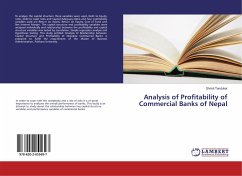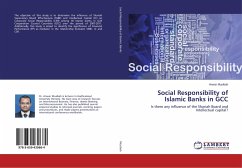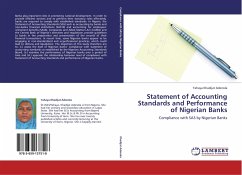This book focuses on the financial statement analysis of urban cooperative banks located in Surat city. It includes the origins of the urban co-operative banking movement in India, which can be traced to the close of the nineteenth century. It was inspired by the success of the experiments related to the co-operative movement in Britain and the co-operative credit movement in Germany that such societies were set up in India. Co-operative societies are based on the principles of cooperation, mutual help, democratic decision-making, and open membership. Co-operatives represented a new and alternative approach to an organisation as opposed to proprietary firms, partnership firms, and joint stock companies, which represent the dominant form of commercial organisation.
Bitte wählen Sie Ihr Anliegen aus.
Rechnungen
Retourenschein anfordern
Bestellstatus
Storno








